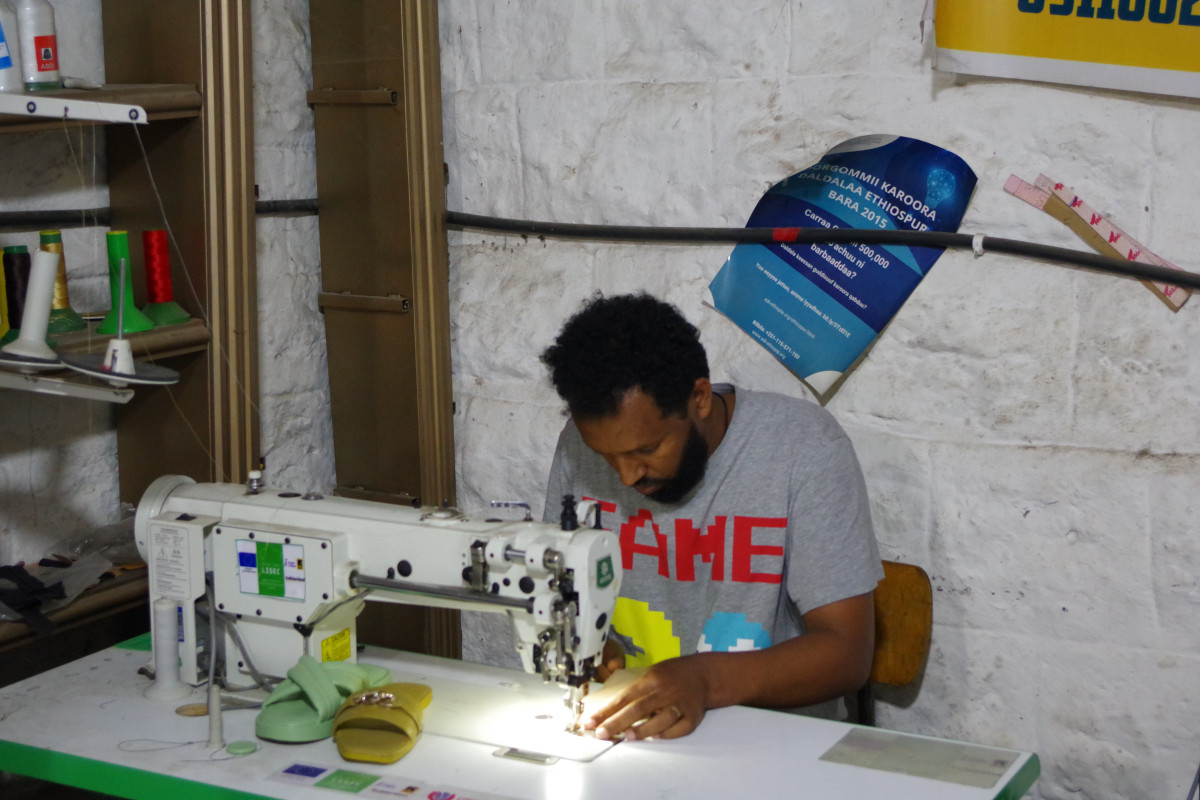Tewabe’s Journey: From Shoe Shiner to Successful Entrepreneur
Published: May 10, 2024 Reading time: 4 minutes Share: Share an articleAs a child, Tewabe Eshete from Ethiopia used to shine shoes on the street to earn some money for food. Today, he is successful entrepreneur in the leather business.

Tewabe Eshete lives in Adama city, 99 km southeast of Ethiopia's capital, Addis Ababa. After working in various jobs, including shoe shining, Tewabe ultimately decided to pursue a job in leather products in 2014.
For a teenager who came from a rural town, he found seeking employment and making a living considerably more difficult than he had expected. “Residing in Adama was very tough for me. There is nothing that I didn’t try to secure employment at the very beginning,” said Tewabe. “After experiencing several challenges, I started to work in small shoe repair shop for a daily payment of 20 ETB.” After getting this opportunity, Tewabe decided to be as financially responsible as he could to pursue his vision of starting his own business. He begun to deposit ekub (traditional way of saving money), consequently bought some shoe repair materials and started repairing leather shoes by himself.
With this beginning, he started to improve his business and subsequently ventured into production of leather goods despite having limited knowledge of the process. However, as he begun production with a skilled employee working alongside him, he was able to acquire different techniques and skills that were valuable for improving business.
As the business progressed, Tewabe questioned whether he might have overlooked certain aspects of his work that were hindering the growth of his business at the pace he expected and leaving living a hand-to-mouth existence.
In 2021, People in Need (PIN), together with its partners International Rescue Committee and Solidaridad, launched a consortium project entitled LISEC (Leather initiative for Sustainable Employment Creation): Green Jobs in the Leather Sector funded by European Union and supported by Czech Republic Development Cooperation. The project came with a broad vision for the leather sector, one of which is to develop the capacities of existing Micro, Small and Medium Enterprises (MSMEs) in the leather sector.
In the beginning, LISEC provided a Business Development Service (BDS) for Tewabe and other MSMEs in order to support them in strengthening and improving their business. “It is no exaggeration to say that the BDS has changed my life,” he said. Most of the MSME members had no prior information about services that could improve the performance of their enterprises, their access to markets and their ability to compete.
The project also delivered leather sewing machines for Tewabe’s and other MSMEs. “I was working with one outdated sewing machine. Buying sewing machines was not in my short term plan due to their expensiveness,” described Tewabe. Now he received three modern sewing machines and hired three employees for his enterprise. His monthly turnover has been increasing since the support.
“Additionally, the project has been supportive in securing loans from microfinance institution, further supporting my endeavours. I really want to thank the project. My business couldn’t go this far if I didn’t get the support.”
For the past three years, LISEC Green Jobs Project supported 17 existing MSMEs in the leather sector and has trained more than 600 unemployed women and youth in five TVET and Polytechnic colleges of Modjo, Adama, Bishoftu, Dukem and Sebeta in the leather sector.



